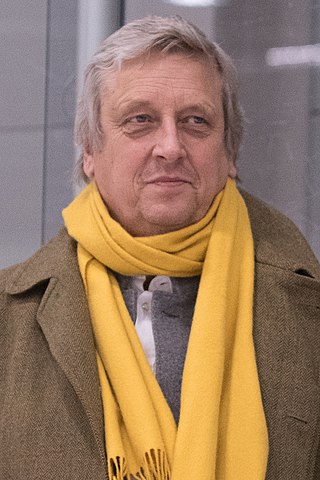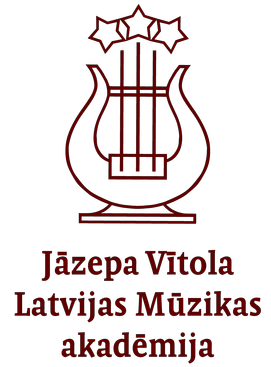Traditional Latvian music is often set to traditional poetry called dainas, featuring pre-Christian themes and legends, drone vocal styles, and Baltic psaltery.

Imants Kalniņš is a Latvian composer, musician and politician. Having studied classical and choral music, he has written seven symphonies, several operas, oratorios, cantatas, choir songs, a lot of movie and theater music. However, he is generally best known for his rock songs. In 2021, Kalniņš received the Grand Music Award for lifetime achievement.
Zodiac was a Latvian space disco band active in the Latvian Soviet Socialist Republic between 1980 and 1992. The band was extremely popular in the Soviet Union and has been credited by critics as the Soviet answer to the French band Space who were popular at the time.

Emīls Dārziņš was a Latvian composer, conductor and music critic. Dārziņš' work bears a distinct romantic character, with a strong trend towards national themes. His main musical authorities and influences were Pyotr Tchaikovsky and Jean Sibelius. Dārziņš musical contribution is mainly to vocal music, but he also composed orchestral music, though only one piece, "Melanholiskais valsis" has survived. His only opera, "Rožainās dienas", remained unfinished after his early death at the age of 34.
Marģeris Zariņš was a Latvian composer and writer. He was an author of symphonic and vocal symphonic music, choir music, vocal chamber music, cantatas, oratories and operas; contemporary picaresque novels and short stories. He is considered to be the first representative of the Postmodern style in Latvian literature.

Iveta Apkalna is a Latvian organist and pianist.
Pēteris Plakidis was a Latvian composer and pianist.

Zigmars Liepiņš (born 14 October 1952 in Liepāja, Latvian SSR, USSR is a Latvian composer, keyboard player and the chairman of the board for the Latvian National Opera. Liepiņš has written songs for choirs, solo artists, orchestras, films, theatres, and operas.

Jāzeps Vītols Latvian Academy of Music, formerly the Riga Conservatory, is a higher music conservatory in Riga, Latvia. The junior institute is the Emīls Dārziņš Music School.

Jānis Mediņš was a Latvian composer.
Maija Einfelde is a Latvian composer.

Lūcija Garūta was a Latvian pianist, poet and composer. She is mostly known for composing the cantata Dievs, Tava zeme deg! in 1943.
Jānis Kalniņš was a Latvian Canadian composer and conductor.
Jānis Ozols is a Latvian choral conductor, television personality, gastronomy blogger and former member of vocal group Cosmos.
Mariss Vētra was a Latvian opera singer, stage director, educator, and writer.

Jānis Liepiņš is a Latvian conductor. Since 2014 he has been the conductor at the Latvian National Opera and Ballet (LNO). For the LNO, he has conducted productions of Il trovatore (2014), Le Villi and Gianni Schicchi (2015), Eugene Onegin (2016), Romeo and Juliet (2014), Scheherazade And Her Tales (2016), and La Bayadère (2012), and was both the conductor and musical director for the ballet Raymonda (2015) and operetta Die Fledermaus (2015).

Helga Dancberga was a Soviet then Latvian actor. She was the director of the Department of Culture and Arts at the Latvian Conservatoire.

Edgars Račevskis was a Latvian conductor.
Helmers Pavasars (1903–1998) was a Latvian organist, composer, violinist, publicist, conductor and music teacher.

Jānis Šipkēvics is a Latvian musician – singer, multi-instrumentalist, composer, lyricist, and producer. He is a member of the group Instrumenti, the founder of the vocal group Cosmos and musical projects Nepariet and Dora. His solo project is known as Shipsea.











